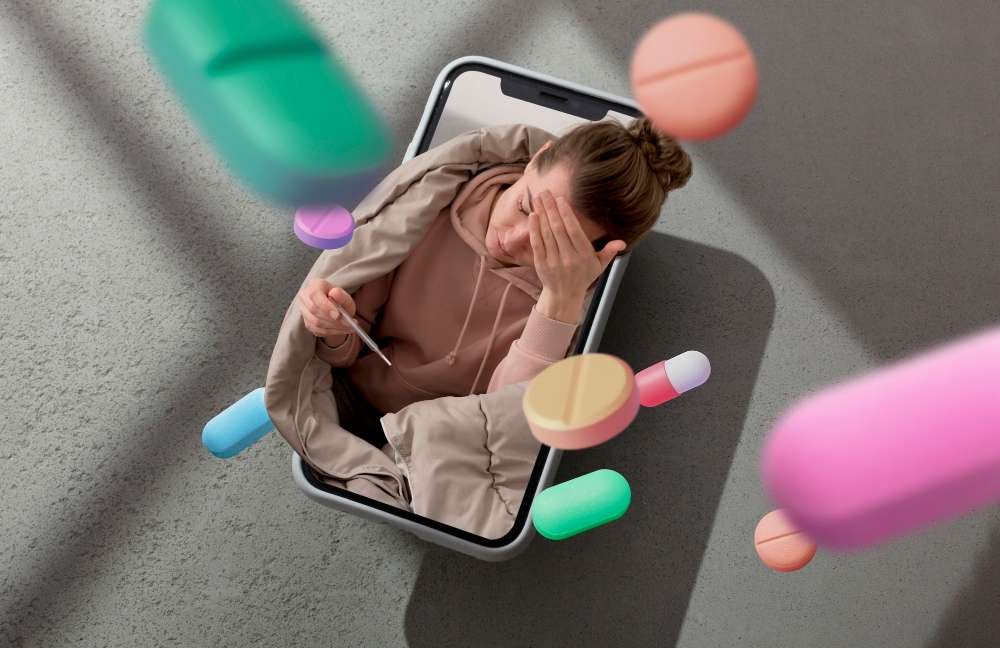Table of Contents
- Introduction (The impact of social media on mental health)
- The Role of Social Media in Our Lives
- The Positive Aspects of Social Media
- The Dark Side of Social Media
- The Impact on Mental Health
- The Connection Between Social Media and Self-esteem
- Coping Strategies
- Conclusion (impact of social media on mental health)
- FAQs (impact of social media on mental health)
- Q1. Can social media have a positive impact on mental health?
- Q2. How can I combat the negative effects of social media on self-esteem?
- Q3. Is social media responsible for the rise in anxiety and depression?
- Q4. How can I help a friend who is experiencing cyberbullying on social media?
- Q5. Is it possible to maintain a healthy relationship with social media?
Introduction (The impact of social media on mental health: A research paper)
Day by day the impact of social media on mental health is becoming one of the prominent issue. Social media , a ubiquitous presence in our daily lives, has reshaped the way we communicate, connect, and share information. As these platforms continue to influence society, the question of their impact on mental health has gained prominence. This research paper delves into the complex relationship between social media and mental well-being, offering insights into the latest studies and findings. It explores the psychological mechanisms at play, shedding light on the potential risks and benefits of our digital interactions. Join us on a journey to understand how the digital age is shaping our mental health landscape.
The Role of Social Media in Our Lives
Social media platforms such as Facebook, Instagram, Twitter, and TikTok have redefined the way we interact with each other. They offer a virtual space where individuals can express themselves, stay updated on current events, and maintain relationships with friends and family. However, the omnipresence of these platforms has both positive and negative consequences.
The Positive Aspects of Social Media
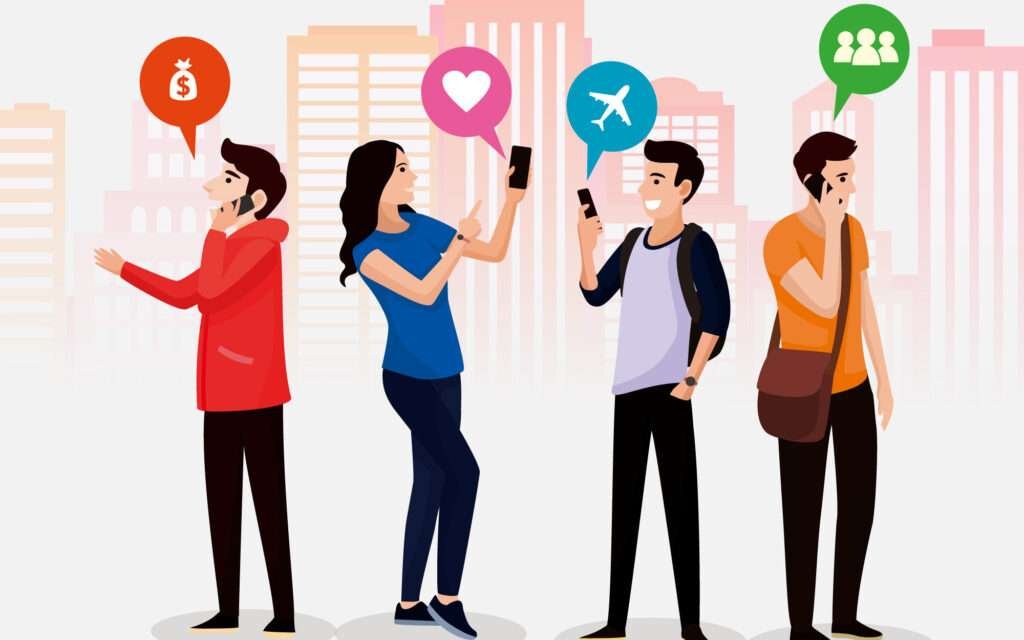
Image Credit Freepik
A. Connectivity and Communication
One of the primary benefits of social media is its ability to connect people across distances. It allows individuals to stay in touch with loved ones, even when they are miles apart. This sense of connectedness can contribute to improved mental well-being.
B. Information Sharing
Social media serves as a valuable source of information and knowledge sharing. It provides a platform for individuals to learn, discover new ideas, and engage in meaningful discussions.
C. Support and Awareness
Social media can be a lifeline for those dealing with mental health issues. Online communities and support groups offer a safe space for people to seek advice, share their experiences, and raise awareness about various mental health challenges.
The Dark Side of Social Media
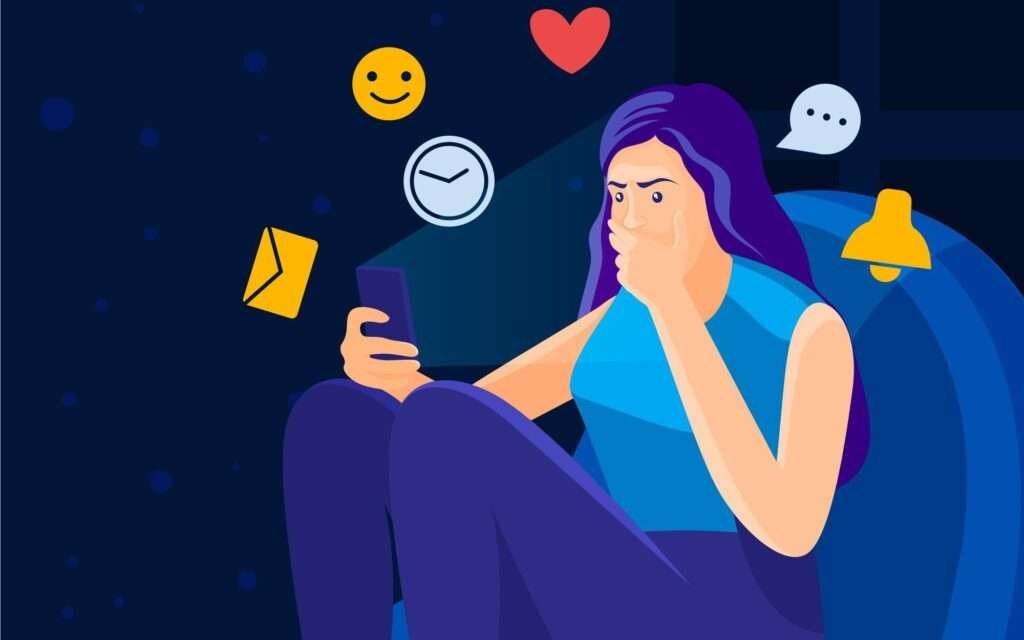
Image Credit Freepik
While social media offers numerous benefits, it also has a dark side that affects mental health and self-esteem.
A. Comparison and Envy
Constant exposure to curated, idealized images and lifestyles on social media can lead to unrealistic comparisons and feelings of inadequacy. Users often feel envious of others’ seemingly perfect lives, which can negatively impact their self-esteem.
B. Cyberbullying and Harassment
The anonymity provided by social media can sometimes bring out the worst in people. Cyberbullying and online harassment can have severe consequences on an individual’s mental health, leading to stress, anxiety, and even depression.
C. Fear of Missing Out (FOMO)
The fear of missing out, commonly referred to as FOMO, is a prevalent phenomenon on social media. It can lead to anxiety and compulsive social media use, as individuals feel the need to stay constantly connected and updated.
The Impact on Mental Health
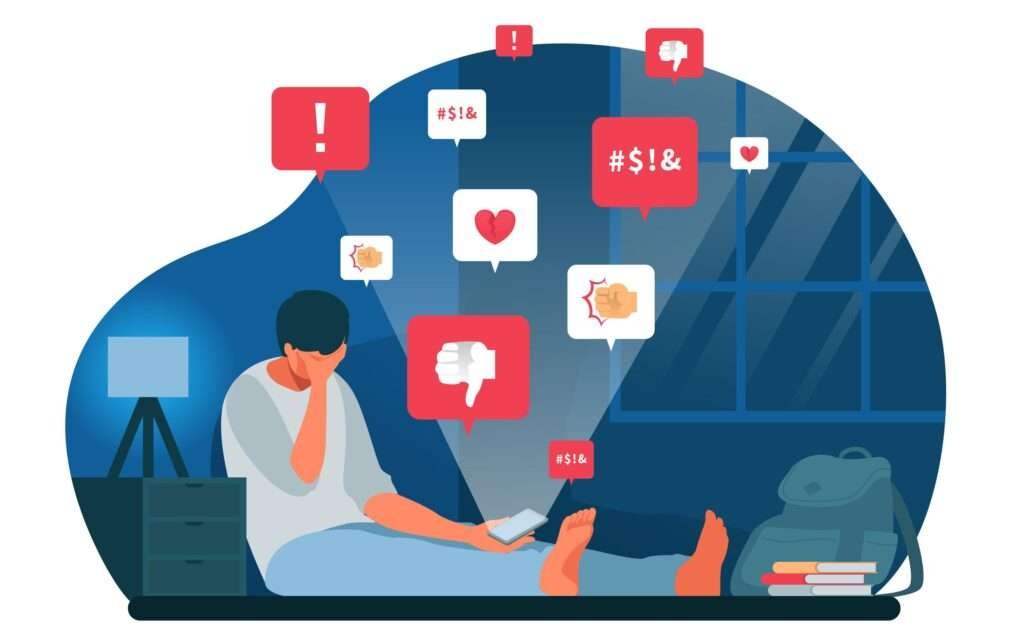
Image Credit Freepik
A. Anxiety and Depression
B. Loneliness
Ironically, excessive use of social media can lead to feelings of isolation and loneliness. While we may have many virtual friends, real-life relationships may suffer.
The Connection Between Social Media and Self-esteem
The constant exposure to social media can trigger anxiety and depression in susceptible individuals. The pressure to conform to societal standards and the fear of not being accepted can be overwhelming.
A. Self-image and Body Image
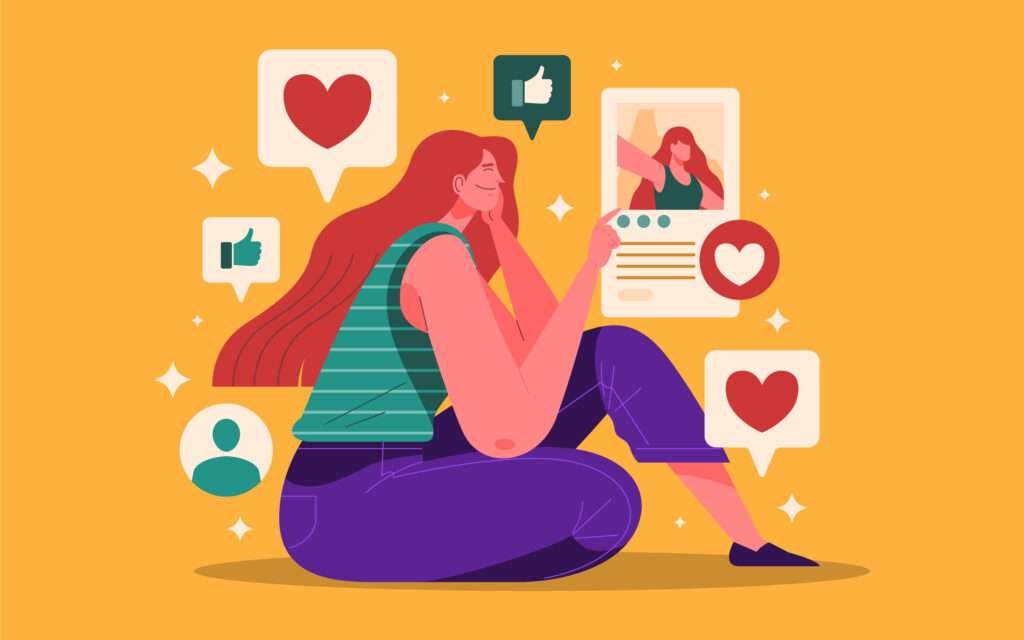
Image Credit Freepik
The idealized images of beauty and success on social media can distort an individual’s perception of themselves. It can lead to issues related to self-image and body image, affecting self-esteem.
B. Validation and Self-worth
Many individuals seek validation and approval through social media likes and comments. This external validation can become a measure of self-worth, and the absence of it can be detrimental to self-esteem.
Coping Strategies
A. Digital Detox
To mitigate the negative impact of social media on mental health and self-esteem, taking regular digital detoxes can be beneficial. Disconnecting from social media for short periods can help individuals regain perspective and reduce anxiety.
B. Limiting Social Media Time
Setting strict time limits for social media use can also prevent its adverse effects. By reducing screen time, individuals can prioritize face-to-face interactions and self-care.
C. Positive Online Interactions
Encouraging positive online interactions and promoting kindness and empathy can create a more supportive and uplifting social media environment.
TO OVERCOME READ OUR “EFFECTIVE TIME MANAGEMENT TIPS FOR TODAY’S HECTIC LIFESTYLE”
Conclusion (impact of social media on mental health: A research paper)
In conclusion, social media is a double-edged sword that can significantly influence mental health and self-esteem. While it offers opportunities for connection, knowledge sharing, and support, it also poses risks related to comparison, cyberbullying, and FOMO. To maintain a healthy balance, it’s crucial for individuals to be mindful of their social media usage and employ coping strategies that safeguard their mental well-being.

Image Credit Freepik
FAQs (impact of social media on mental health: A research paper)
Q1. Can social media have a positive impact on mental health?
Yes, it can. Social media can provide support, awareness, and connection, which can contribute to improved mental well-being.
Q2. How can I combat the negative effects of social media on self-esteem?
You can combat negative effects by taking digital detoxes, limiting social media time, and focusing on positive online interactions.
Q3. Is social media responsible for the rise in anxiety and depression?
While it can contribute, it’s important to remember that multiple factors influence mental health issues. Social media is just one of them.
Q4. How can I help a friend who is experiencing cyberbullying on social media?
Support your friend, encourage them to report the bullying, and seek help from appropriate authorities if necessary.
Q5. Is it possible to maintain a healthy relationship with social media?
Absolutely. By being mindful of your usage, setting boundaries, and prioritizing self-care, you can have a healthy relationship with social media.
YOU MIGHT LOVE READING SELF CARE “BEST SELF: THE IMPORTANCE OF SELF CARE AND MENTAL HEALTH”
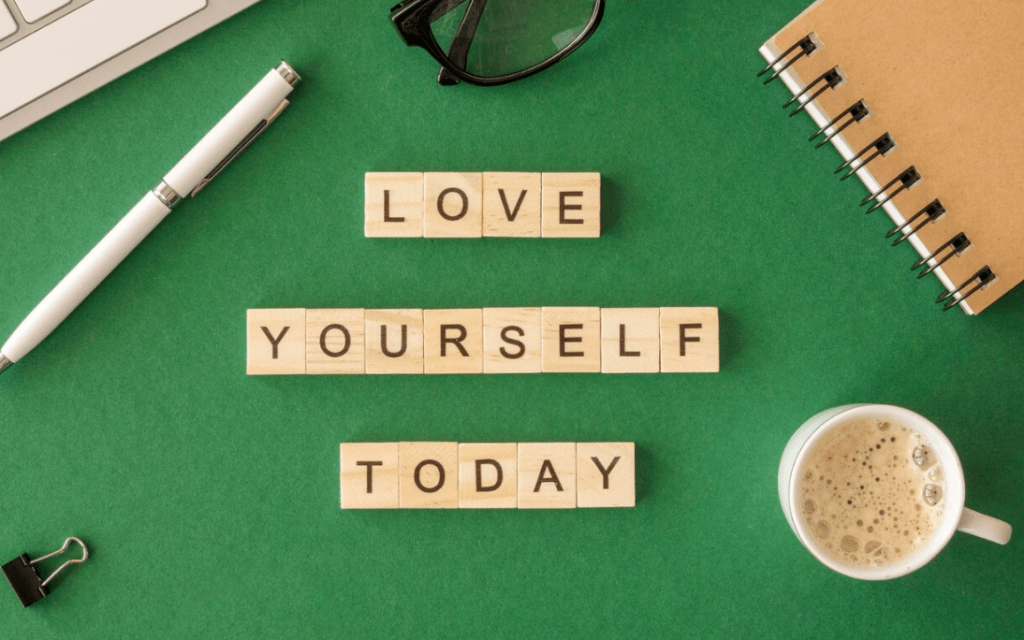
Image Credit Freepik
We thank you for visiting our post “Impact of social media on mental health: A research paper”
READ MORE
WAYS TO STAY MOTIVATED & ACHIEVE YOUR GOALS (2023): A COMPREHENSIVE GUIDE
THE IMPACT OF TECHNOLOGY ON MODERN RELATIONSHIPS: NAVIGATING THE DIGITAL ERA
CLICK HERE for similar articles!
